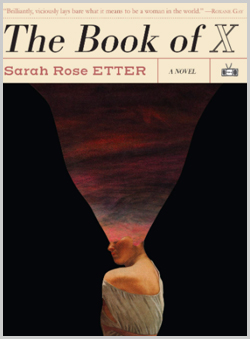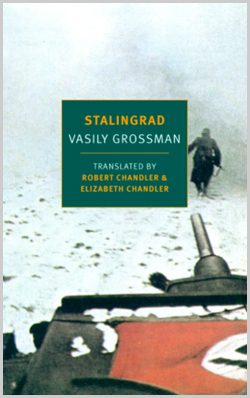Kelsey recommends The Book of X by Sarah Rose Etter:
 Sarah Rose Etter’s debut novel, The Book of X, is set in an experience that seems like a typical “nuclear” domestic life—a mother, a father, a daughter, a son, living in a house on the edge of town. Father and son work in a family business, mother and daughter, cleaning house. The novel focuses on the perspective of Cassie, the daughter, the sister, and the latest woman in her family to be born with a knot in her torso.
Sarah Rose Etter’s debut novel, The Book of X, is set in an experience that seems like a typical “nuclear” domestic life—a mother, a father, a daughter, a son, living in a house on the edge of town. Father and son work in a family business, mother and daughter, cleaning house. The novel focuses on the perspective of Cassie, the daughter, the sister, and the latest woman in her family to be born with a knot in her torso.
The beauty in The Book of X is that sprinkled in with the descriptions of the mechanical efficiency of reality and this domestic life are a few surreal touches—father and son work at a literal meat farm, a deep, throbbing cavern of red, bloody meat to be cut and sold to the town. Mother and daughter have a coiled middle, the knot in their stomach twitching, real, true, and plump with pain.
Poetic structure helps to add to the surreal tone of the novel, descriptions of everyday life sliced with “Visions”—poetic asides, where Cassie is floating in dream space, processing the traumas of her waking life—the effects that her mother, always in pain and self-deprecation, had on Cassie’s self-image—her friendships and traumatic dating experiences, the push and pull of her hometown. The effect of the poetic splicing helps create an interesting flow in the novel, leaving the reader in a strange and powerful emotional mood scape throughout the reading experience.
Etter’s raw and unyielding descriptions of the pain of living in the world as a woman are beautiful. I felt sadness and tenderness for Cassie, because I can relate to living in a body you want to change, but also because the visceral seems to be comforting during a time when there is a global pandemic and things are uncertain and ethereal. If you need a book to read to escape the stress of the current time, but you want a safe place to process those deep and dark feelings that might be bubbling up, I would highly recommend picking up The Book of X.

 During the Battle of Stalingrad, where he was a war reporter for Krasnaya Zvevda, Vassily Grossman wrote a letter to his daughter, telling her that it was impossible to read anything above the hellish thunder of bombs, except for War and Peace.
During the Battle of Stalingrad, where he was a war reporter for Krasnaya Zvevda, Vassily Grossman wrote a letter to his daughter, telling her that it was impossible to read anything above the hellish thunder of bombs, except for War and Peace.